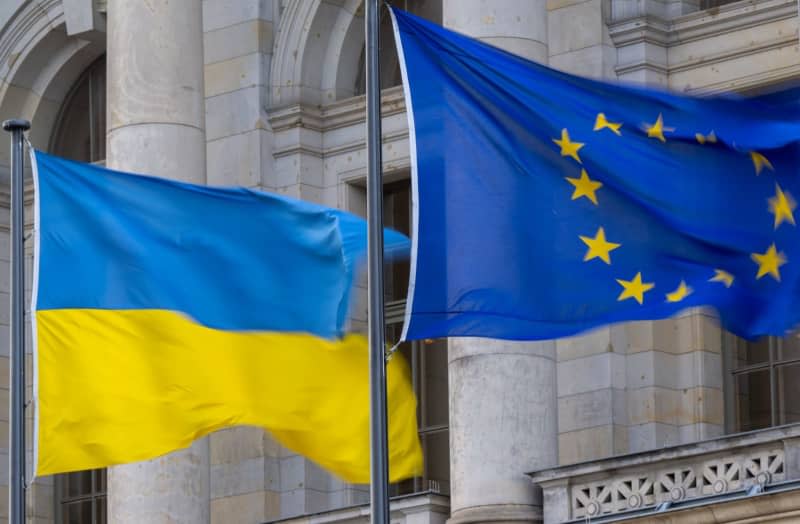EU member states strike deal on €5 billion in Ukraine military aid

- Oops!Something went wrong.Please try again later.
European Union member states on Wednesday struck a deal to jointly provide Ukraine with an additional €5 billion ($5.47 billion) in military aid.
Representatives agreed to expand an existing funding mechanism called the European Peace Facility (EPF), which is used to reimburse purchases of military equipment and fund joint procurement.
The deal adds a new component to the EPF to specifically support Ukraine, called the Ukraine Assistance Fund, proposed by the European Commission last year.
"The Fund will allow us to step up our military support to Ukraine with another €5 billion," the commission's foreign affairs chief Josep Borrell said on X, formerly known as Twitter.
Member states had spent months struggling to agree on how the new off-budget fund should operate.
France wanted to ensure the fund was used to buy armaments produced in the EU. Under the agreement, the EPF will prioritize products made in the EU wherever possible. However, foreign components and products will be allowed when there's no European option, officials told dpa.
Germany, the largest contributor to the EU budget, pushed hard for any of its additional contributions to the EPF to be at least partially offset by the value of the bilateral aid it sends to Ukraine on its own.
It backed the deal after receiving assurances that bilateral aid would be taken into account.
However, diplomats told dpa that this leeway will not be spelled out in the agreed legal text itself. The fund is separate from the EU's main budget, and will serve to guarantee that Ukraine will receive an additional €5 billion from the EU and its member states, one way or another.
“Today’s agreement on the European Peace Facility is good news for Ukraine," Germany's ambassador to the EU, Michael Clauss, said in a statement. "It allows for bilateral military aid, which is quick, efficient and avoids bureaucratic delay, as part of the European effort."
Diplomats also told dpa that the agreement does not mean Hungary will be compelled to send military aid to Ukraine, something it has flatly refused to do.
The EPF has existed since before the Ukraine war, and has been used to fund assistance in other parts of the world, such as Somalia, Benin and the Democratic Republic of Congo.
The Belgian government, which chaired the talks, announced Wednesday's agreement.
"The EU remains determined to provide lasting support to Ukraine and ensure that the country gets the military equipment it needs to defend itself," it posted on X, formerly known as Twitter.

